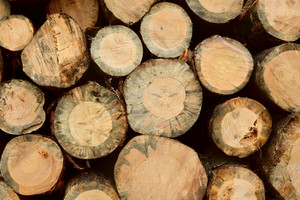Bananas are one of the most versatile fruits. They are available in all colors and are delicious when eaten plain, or cooked into pies, ice creams, smoothies and other desserts. You can eat them raw, or cook them into a savory dish. They are also an excellent source of potassium, vitamin B6, fiber, and magnesium.

Here are some interesting facts about bananas that you may not know.
- * Bananas contain the highest concentration of potassium of any fruit. Potassium is necessary for the proper functioning of the heart and nervous system.
- * Bananas contain vitamin C, which is important for the formation of collagen and elastin, which are the proteins that make up connective tissue.
- * Vitamin C helps prevent scurvy, which is a disease caused by a lack of vitamin C.
- * Bananas contain an enzyme called bromelain, which has anti-inflammatory properties. Bromelain has been used in the treatment of arthritis and sports injuries.
- * Bananas contain a high amount of vitamin B6, which is important for the production of red blood cells.
- * Bananas contain beta-carotene, which is converted into vitamin A in the body. This vitamin is essential for healthy eyesight.
- * Bananas contain folic acid, which is important for the proper growth and development of children.
- * Bananas contain manganese, which is important for the metabolism of carbohydrates and fats.
- * Bananas contain iron, which is important for the maintenance of healthy blood.
- * Bananas contain magnesium, which is essential for the regulation of blood pressure and normal muscle contraction.
- * Bananas contain selenium, which is important for the normal function of the thyroid gland.
- * Bananas contain thiamine, which is important for the digestion of carbohydrates.
- * Bananas contain tryptophan, which is important for the synthesis of serotonin, which is important for mood and sleep.
- * Bananas contain fiber, which is important for the prevention of colon cancer.
- * Bananas contain antioxidants, which help protect the body against free radicals.
- * Bananas contain carbohydrates, which help control your appetite.
- * Bananas contain protein, which helps build muscles.
- * Bananas contain vitamins B1, B2, B3, B5, B6, B7, B8, B9, B12, E, K, C, A, and D.
- * Bananas contain calcium, which is important for the growth of bones.
- * Bananas contain phosphorus, which is important for the absorption of calcium.
- * Bananas contain zinc, which is important for the healing of wounds.
- * Bananas contain copper, which is important for the transportation of oxygen through the bloodstream.
- * Bananas contain chromium, which is important for maintaining healthy blood sugar levels.
- * Bananas contain molybdenum, which is important for the regulation of blood sugar levels.
- * Banana contains riboflavin, which is important for the conversion of carbohydrates and fats into energy.
- * Bananas contain folate, which is important for the development of healthy red blood cells.
- * Banana contains lutein, which is important for eye health.
- * Banana contains zeaxanthin, which is important for vision health.
- * Banana contains xanthophylls, which are important for the protection of the skin from the harmful effects of sunlight.
- * Banana contains pectin, which is important for controlling cholesterol.
- * Banana contains saponins, which are important for lowering blood cholesterol.
- * Banana contains choline, which is important for brain function.
- * Banana contains phospholipids, which are important for the maintenance of cell membranes.
- * Banana contains flavonoids, which are important for the prevention of cancer.
- * Banana contains anthocyanins, which are important for the reduction of inflammation.
- * Banana contains phytosterols, which are important for the regulation of cholesterol.
- * Banana contains phenolic acids, which are important for the detoxification of heavy metals.
- * Banana contains carotenoids, which are important for maintaining good vision.
- * Banana contains vitamins A, B1, B2, and B3.
- * Banana contains vitamin C, which is important in the formation of collagen and elasitin, which is the protein that makes up connective tissue.
